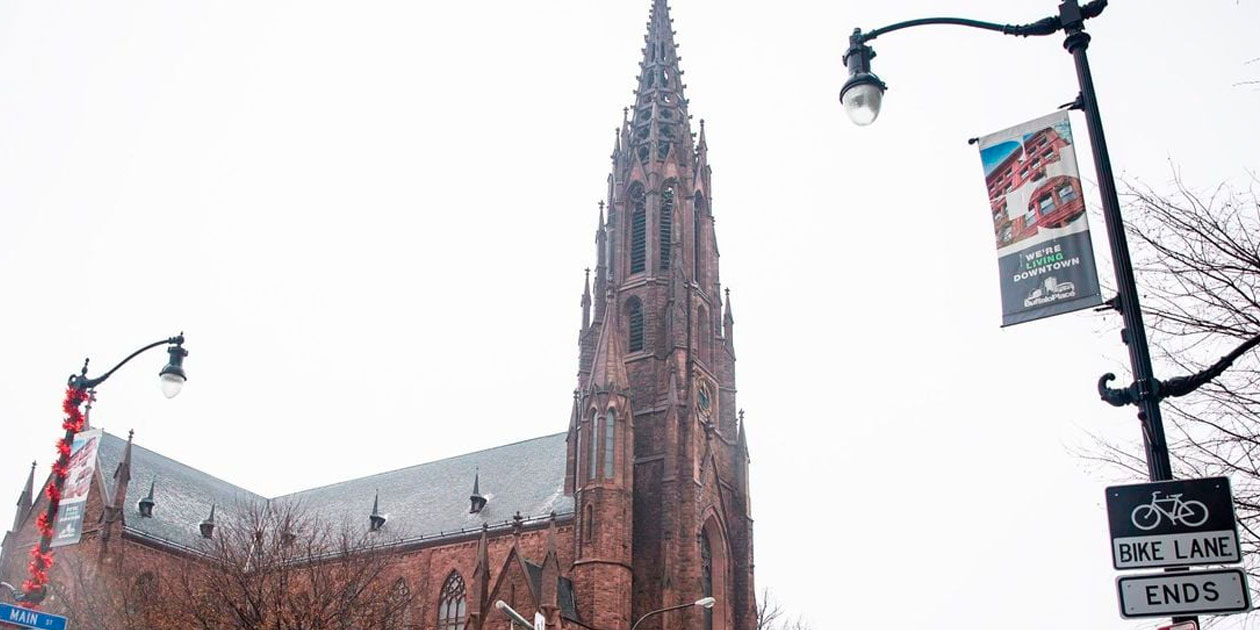
The Concealed Carry Improvement Act (CCIA) was hastily enacted by state lawmakers as a response to the U.S. Supreme Court’s landmark Bruen decision last year. One of its provisions concerning “sensitive” places bans individuals from carrying firearms in a place of worship.
This created yet another “gun-free” zone, and we all know how well those are working out.
A pair of western New York pastors took legal matters in their own hands. Rev. Jimmie Hardaway Jr. of Trinity Baptist Church in Niagara Falls and Bishop Larry A. Boyd of Open Praise Full Gospel Baptist Church in Buffalo lawyered up and challenged the provision.
So, New York at least took a step in the right direction and amended the ill-conceived provision. Pastors and “persons responsible for security” will now be allowed to carry weapons at places of worship, though many said the change is vague and unclear on how these churches may actually defend themselves.
Tzvi Waldman is the head of the NYS Jewish Gun Club. His organization provides security training for houses of worship — a concept that until recent years seemed wholly unnecessary. That notion, however, has changed.
In 2015, a young man carried out a racially-motivated terrorist attack on Emanuel African Methodist Episcopal Church in Charleston, South Carolina. Nine parishioners died that day, and the gunman has since been sentenced to death.
In 2018, an antisemitic terrorist attack took place at L’Simcha Congregation in Pittsburgh, Pennsylvania. Eleven Jewish worshipers lost their lives, and the shooter is charged with multiple capital crimes.
More recently, a study showed that almost 70 attacks have been perpetrated on U.S. churches in just the first three months of this year. What is plain is that Waldman’s service is both timely and essential.
The trainer said that political leaders did not really have the safety of churches in mind when they caved to pressure and pulled back parts of CCIA.
“They didn’t come in thinking, ‘What can we do to make the community safer, to make people safer.’ Because if they were, they would have discussed it with us to try to figure out what we really need, and none of that happened.”
Another critic of New York lawmakers is Amy Swearer, a senior legal fellow for the Heritage Foundation’s Edwin Meese III Center for Legal and Judicial Studies. She declared that New York’s slight modifications were “not nearly enough” and ignored how religious communities work.
“This really doesn’t do a whole lot for many houses of worship. You have people inside those churches for various church programs or functions, daycares or pastors and secretaries and choir rehearsals,” she said. “Those are all occurring throughout the week, and even if they can have armed private security, during you know, one or two hours on Sunday, that doesn’t take care of the rest of the week.”
Both Waldman and Swearer pointed to the dangers faced by worshipers as they commute to and from services and events. Not being allowed to carry inside means they must either travel unarmed or be forced to leave their weapons in their vehicles.
As Swearer noted, every criminal in New York will know the vehicles are where the weapons are. Having guns locked in cars does nothing to protect parishioners when they are inside the church.
The changes recently adopted through the 2024 New York budget define “security guard” as persons with a “special armed registration card” during the time and at the location where they are employed.
It is a sad state of affairs when houses of worship need armed security, but that’s where we find ourselves in 2023. And while hired protectors may be great for Sunday services, New York’s draconian gun restrictions prevent worshipers from defending themselves during the rest of services and throughout the week.
Criminals, of course, do not have the slightest concern about the state’s restrictions and “sensitive” places.
